In the mountains of northern Thailand , Chiang Mai is the country’s second-most populous city-cum-province (after Bangkok), and attracts roughly 10 million travelers each year — families included — who are keen to visit the region’s ornate Buddhist temples and appreciate Lanna culture. An agriculturally rich area of forests and rivers, Chiang Mai was built in 1296 to serve as the capital of the independent Lanna Kingdom, translating to the kingdom of a million rice fields. The kingdom and its unique culture, from architecture to dance, thrived for centuries before being annexed into modern-day Thailand in 1893.
Today, families visiting Chiang Mai can tour temples, pop into cafes and shops in the old city, visit an elephant sanctuary and even hike in a nearby national park. Ride a tuk-tuk through the bustling bazaars, wander night markets or take a cooking class with delicious results. There’s plenty to fill several days in town, and a weeklong stay allows time to explore the surrounding area as well.
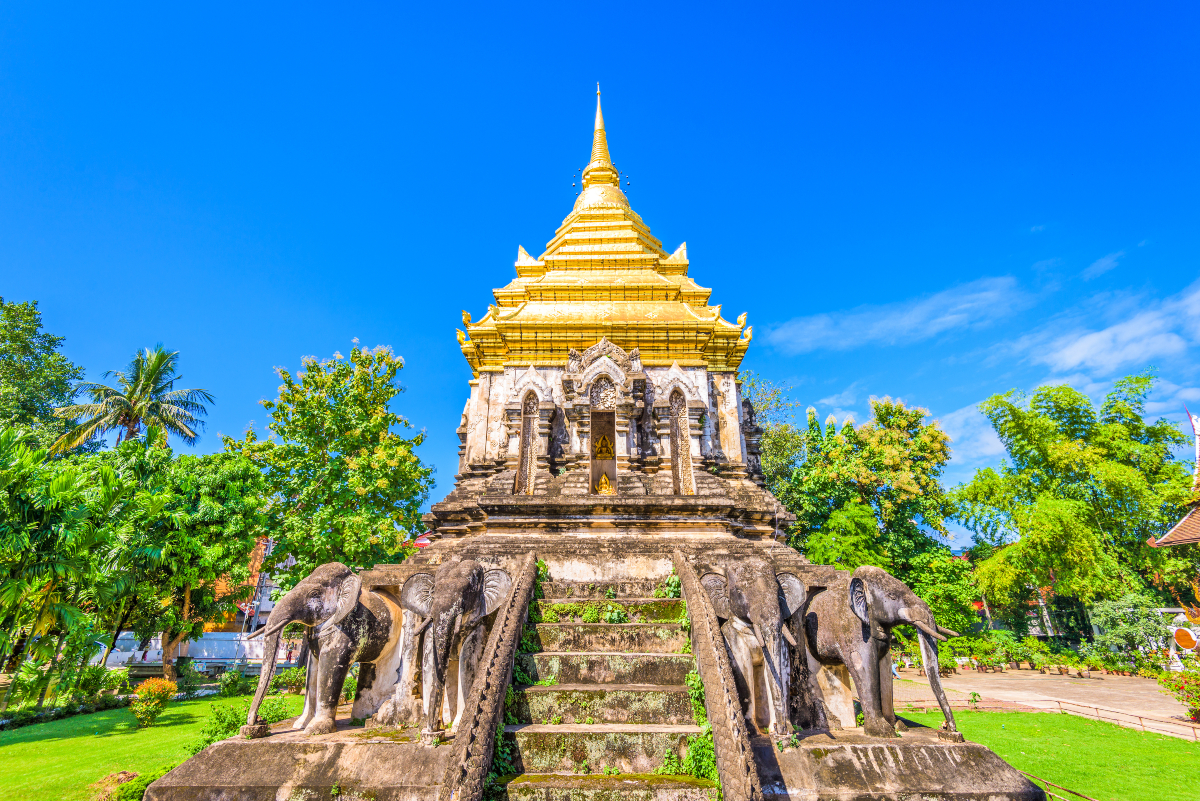
Chiang Mai with Kids: What to See and Do
Marvel at Ancient Temples
With more than 300 Buddhist temples in Chiang Mai and the surrounding area, it can feel hard to choose which ones to visit. Although temples are open to the public and can easily be visited on your own, my family opted to have a guide take us on a temple tour through the city, lending historical and religious context along the way and helping to keep everyone engaged. We started at Wat Chiang Man, the oldest temple in the area, built in 1296 by Chiang Mai founder King Mengrai. Along with an ancient Buddha statue in its Lanna-style main hall, the temple is famous for its chedi, or stupa, supported by rows of elephant-shaped buttresses.
We can help you book your dream family vacation to Thailand!
Our expert Family Travel Advisors can help you choose vetted kid-friendly accommodations, design a custom itinerary, arrange private guides and experiences, and more. Click to send us a request!
On the outskirts of the city, you’ll need a car to get to Wat Phra That Doi Suthep. Climb a staircase of 306 steps, flanked by mythical sea serpents, or take a cable car to reach the temple. With our guide, we walked around the main golden chedi three times and made an offering of lotus flowers. Two other important temples to consider visiting are the 14th-century Wat Chedi Luang and Wat Phra Singh with its Lion Buddha statue.
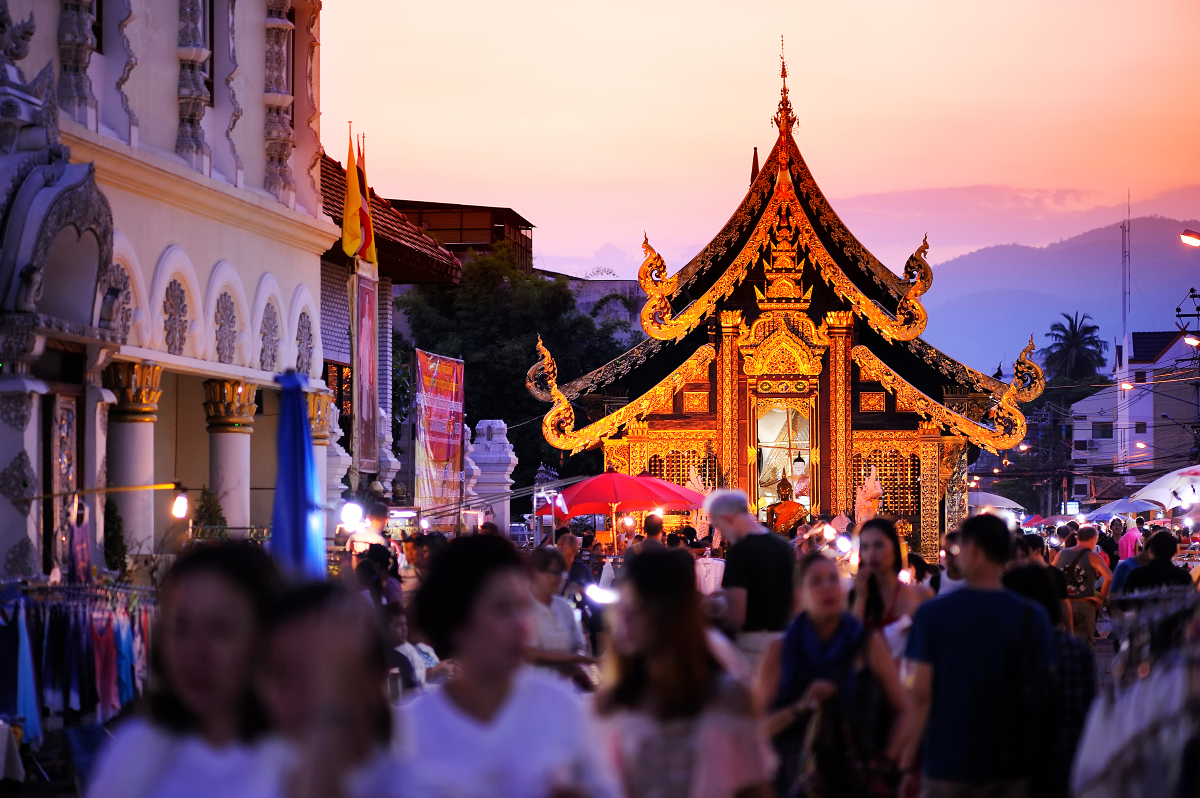
Take in Old City Charm
Once a walled, moated city, Chiang Mai’s historic core is where many of the city’s temples sit, yet also where hotels, cafes and boutiques have sprung up with the rise of tourism. Stroll lively Ratchadamnoen Avenue, which hosts a Sunday “Walking Street” — a pedestrian-only street fair with crafts and food. Along that same lane, Chanya’s Shops and Gallery has a fantastic selection of souvenirs such as locally made textiles, elephant figurines in all sizes and colors, and toy tuk-tuks. Check out the Chiang Mai Night Bazaar too, on Chang Khlan Road between Tha Phae and Sridonchai Roads.
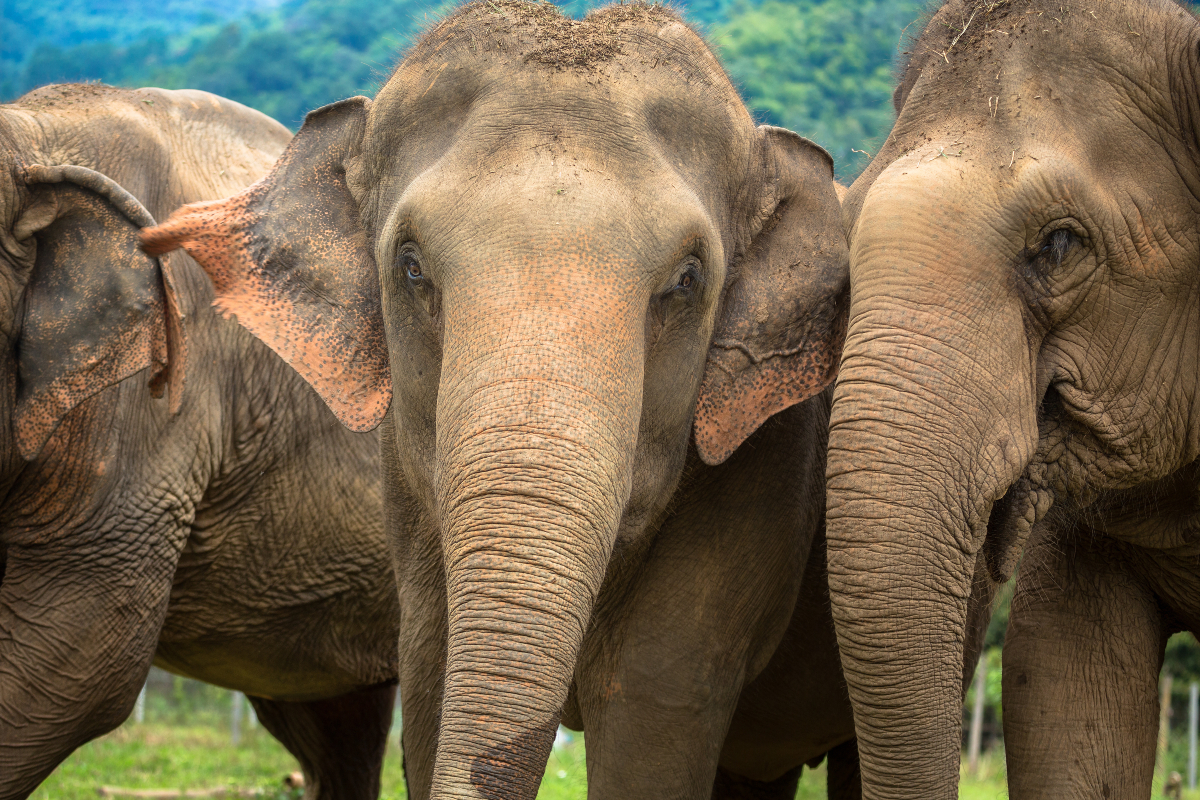
Head for an Elephant Sanctuary
Spending time with pachyderms is typically the highlight of any Thailand family itinerary. At Chiang Mai’s Elephant Jungle Sanctuary, which has a reputation as a responsible, ethical, conservation-minded program, visitors can spend a half day or full day with the elephants, learning about their behavior, walking with them, feeding them, and bathing and brushing them. Groups are small so as not to overwhelm the animals. Given the sanctuary’s location, a 90-minute drive into the mountains from Chiang Mai, this is typically an organized visit with the sanctuary arranging transfers for guests.
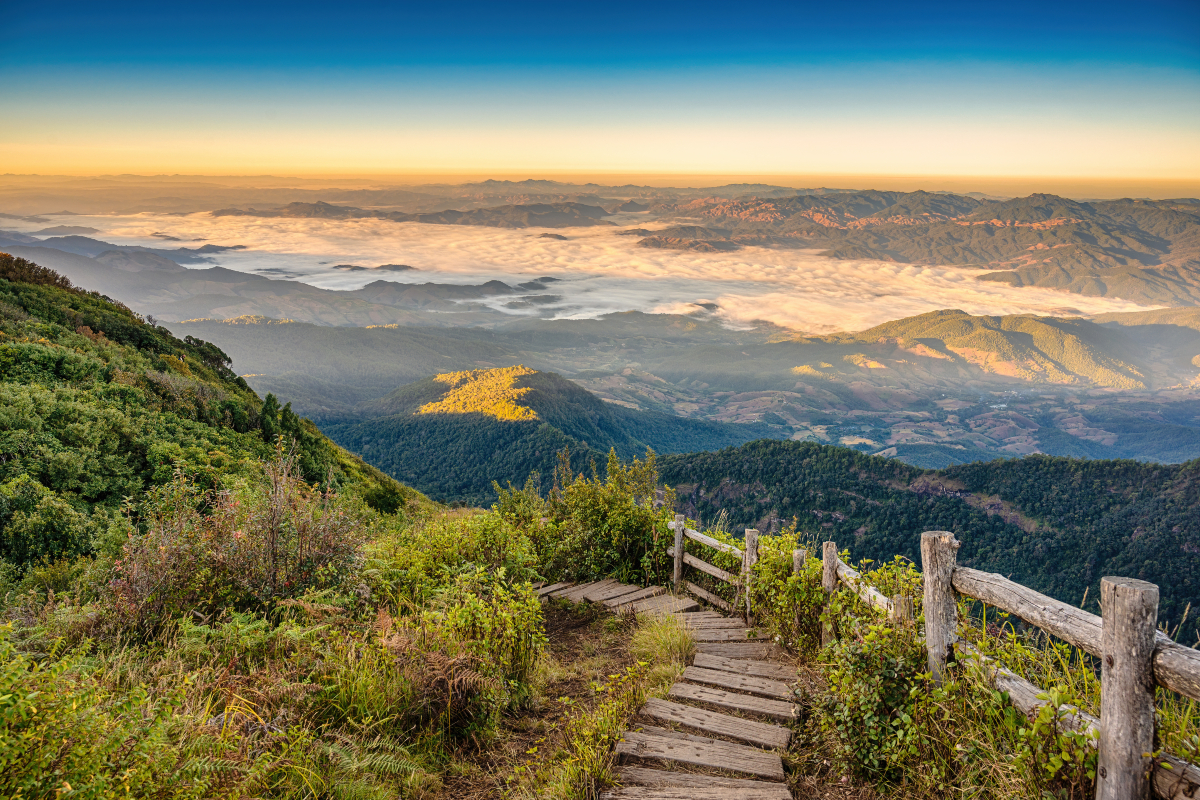
Hike in a Nearby National Park
Well known for its waterfalls, expansive views and birdwatching, lush Doi Inthanon National Park is about two hours from Chiang Mai and named for the park’s highest peak. Doi Inthanon rises to an elevation of 8,415 feet and is, in fact, part of the Himalayan mountain range. A few other highlights include Wachirathan Falls, the Kew Mae Pan trail and two ornate pagodas with manicured gardens to honor the late King Bhumibol Adulyadej and Queen Sirikit. The park requires a full day trip to explore, so guided excursions that include transportation and lunch are an ideal way to visit.
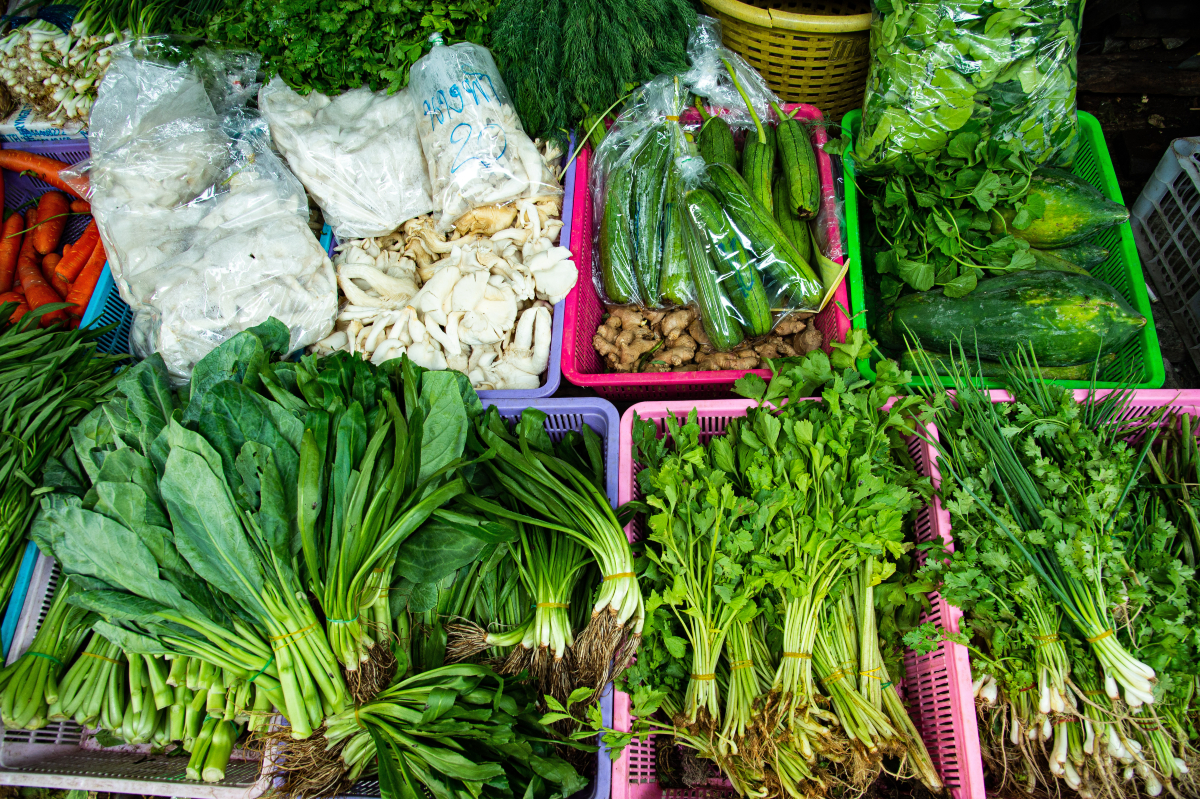
Try a Cooking Class
Whether you take a group lesson through a cooking school or arrange a private experience, you should absolutely explore a kid-friendly cooking class. This was one of my family’s highlights on our 10-day trip to Thailand. Many classes start with the opportunity to shop at the market with the leading chef, where you’ll see vendors hawk everything from mango and galangal to mushrooms and coconuts. The variety of fruits and vegetables is astonishing.
Return and learn to prepare soups, noodles, curries and other dishes, depending on the time constraint. The Spice Spoons cooking class arranged through our hotel, Anantara Chiang Mai , was such a special experience. After the market visit, we had breakfast at a local home and then made tom kha soup, green curry from scratch and mango sticky rice for dessert. Two other cooking classes that are popular in Chiang Mai are Thai Farm Cooking School and A Lot of Thai.
Relevant Links:
Browse all family-friendly accommodations and activities in Thailand on Ciao Bambino
Anantara Chiang Mai: A tranquil Thailand resort escape amid vibrant city life
Island-hopping adventure around the southern Thailand islands with kids
Best beach destinations in Thailand with kids
Editor’s note: This post was accurate when published. We advise checking independently for the latest information and updates. Ciao Bambino does not accept responsibility or liability for any errors or omissions in, or for any actions taken based on, the information presented.







 travel recommendations, inspiring adventures, and exclusive travel offers
travel recommendations, inspiring adventures, and exclusive travel offers